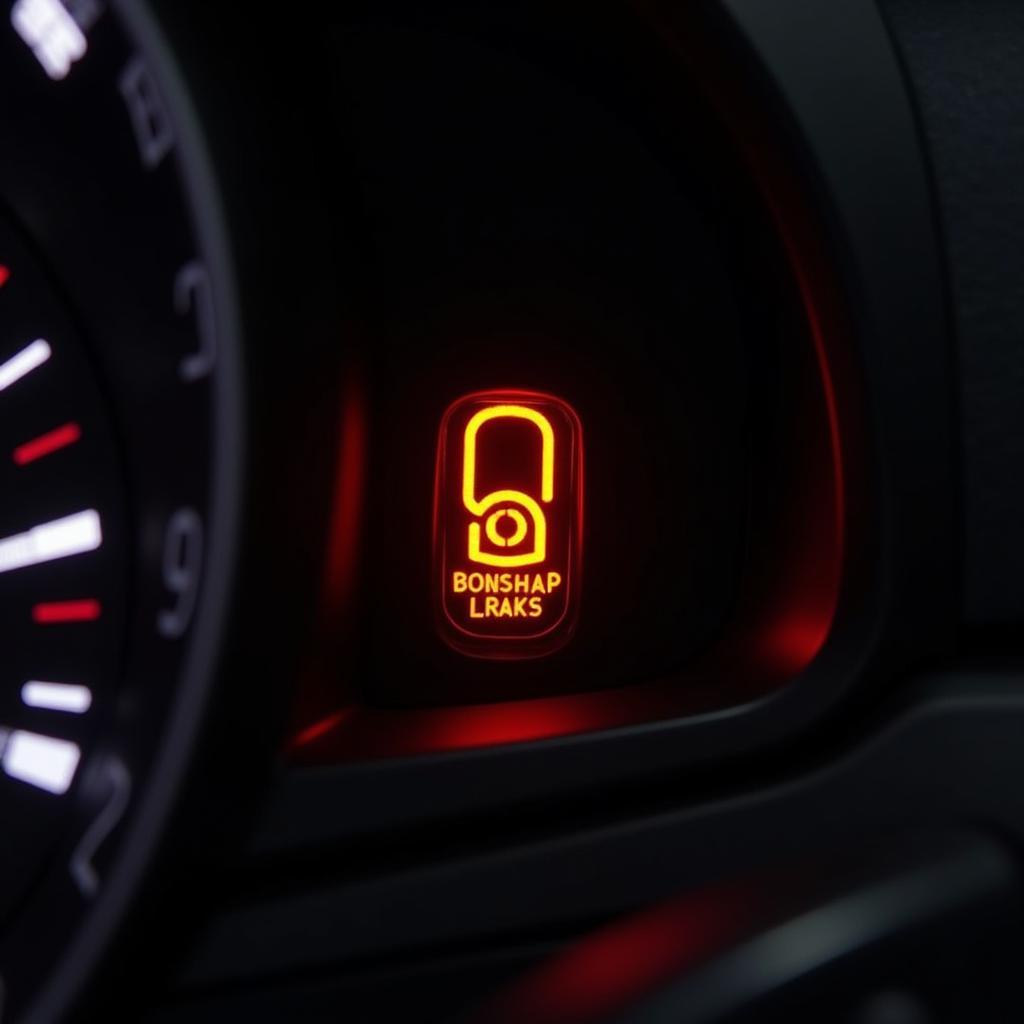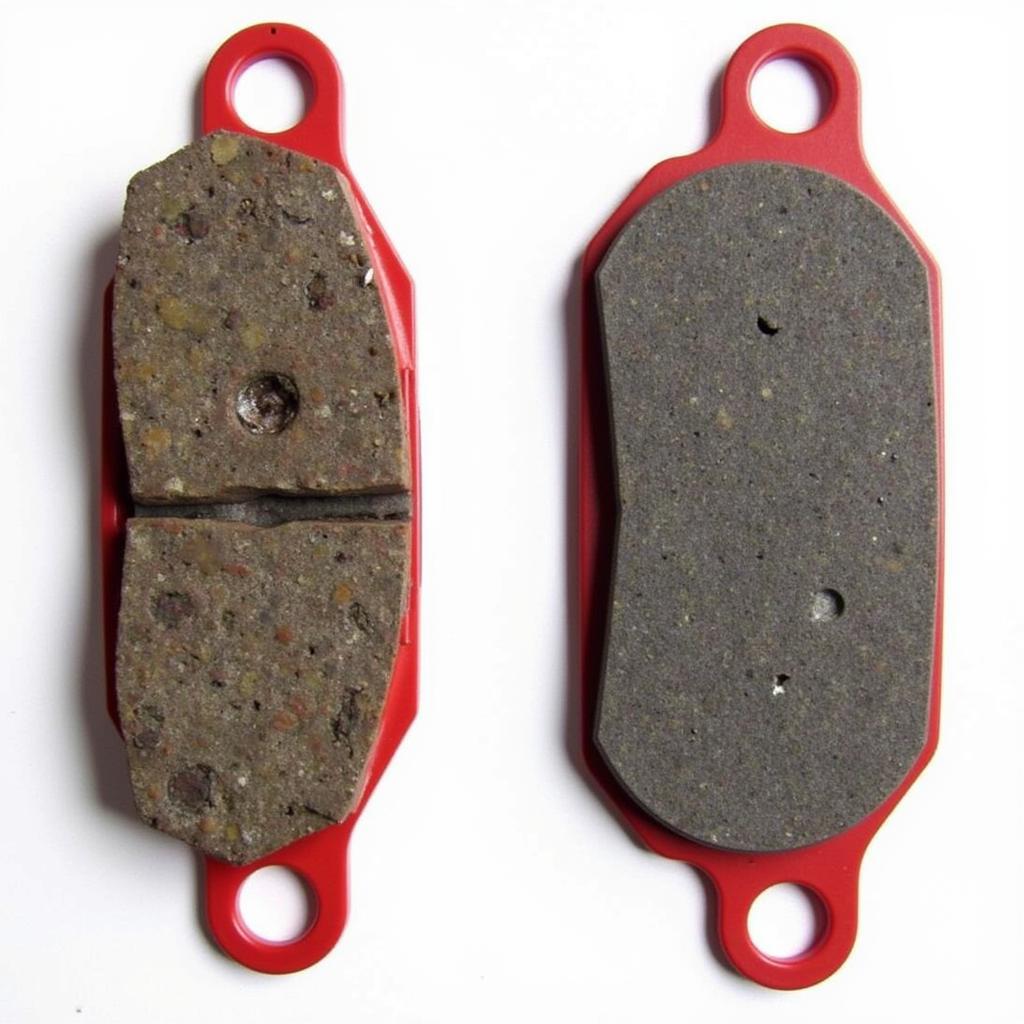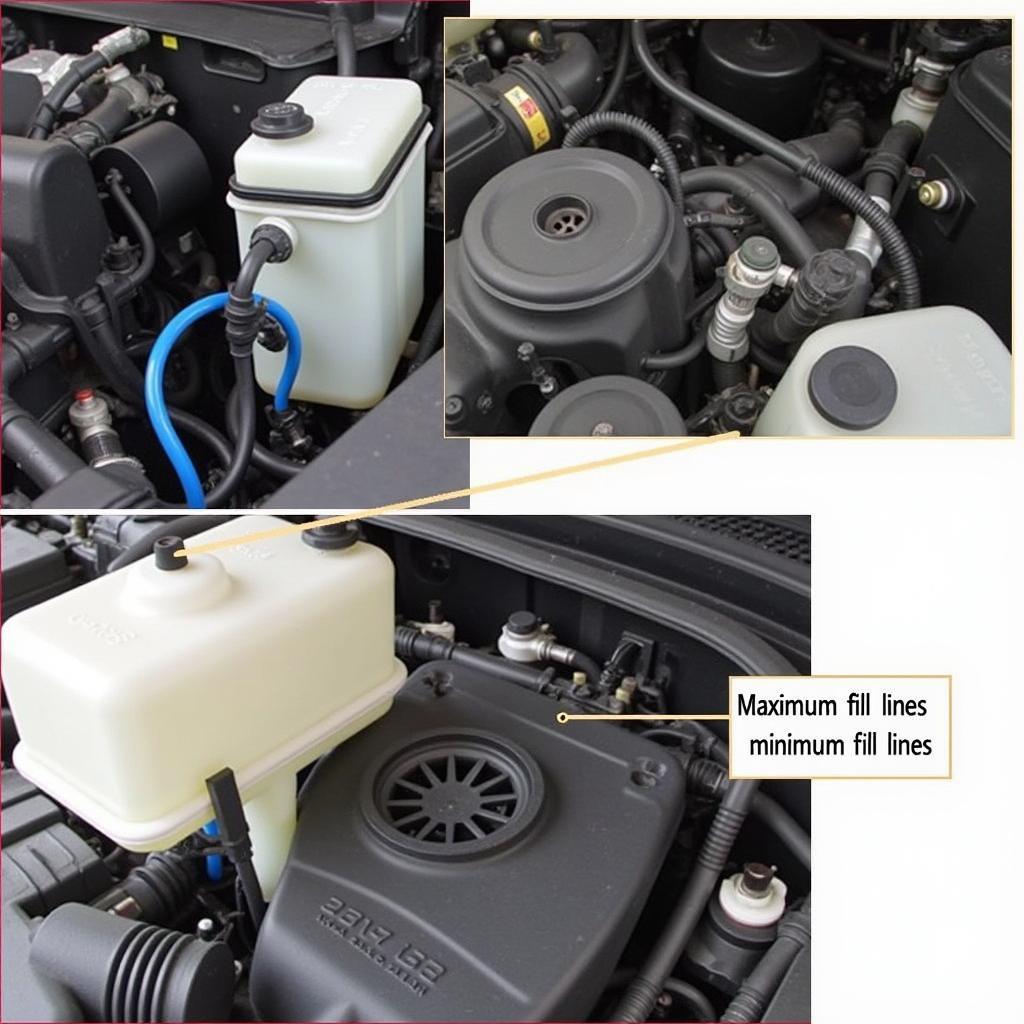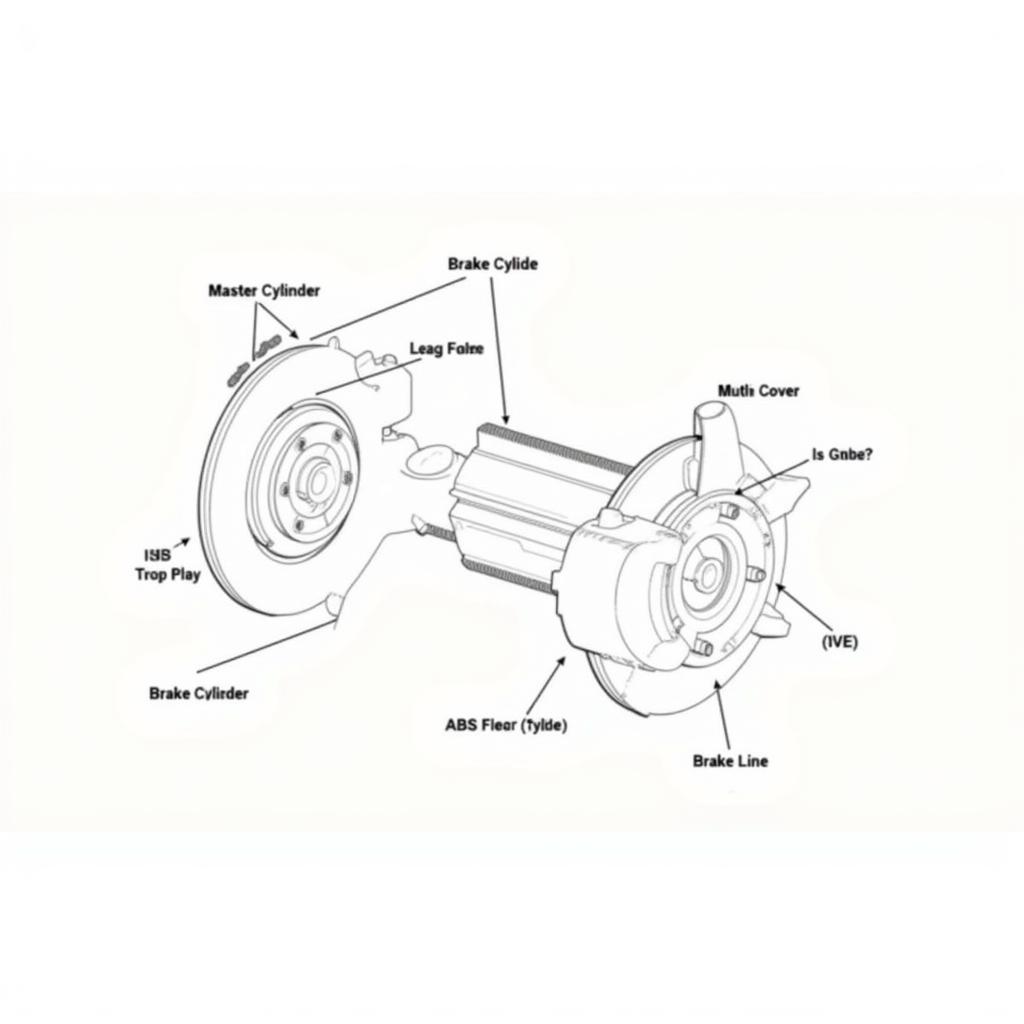The brake warning light on your Audi A4 dashboard is a crucial safety feature that illuminates to alert you of potential issues within your braking system. Ignoring this warning could lead to reduced braking efficiency and unsafe driving conditions. Understanding the various reasons behind this light and knowing how to address them can save you time, money, and potential danger on the road.
Common Causes of an Illuminated Brake Warning Light
While a lit brake warning light can be alarming, it’s important to remember that it doesn’t always signify a catastrophic problem. Here are some of the most common reasons your Audi A4’s brake warning light might be on:
-
Worn Brake Pads: This is the most frequent culprit. Most Audi A4 models have wear sensors in the brake pads that trigger the warning light when the pads reach a certain thinness, signaling the need for replacement.
-
Low Brake Fluid Level: Brake fluid is essential for transmitting the force applied to your brake pedal to the wheels, enabling your car to stop. A drop in brake fluid level, often due to a leak, can cause the warning light to illuminate.
-
Faulty Brake Light Switch: This switch activates the brake lights when you press the brake pedal. If malfunctioning, it can disrupt the brake light circuit and trigger the warning light.
-
ABS (Anti-lock Braking System) Issue: A problem with your ABS, such as a faulty wheel speed sensor, can trigger the brake warning light. In this case, the ABS light may also illuminate on your dashboard.
-
Parking Brake Engaged: While seemingly obvious, many drivers overlook this simple possibility. If your parking brake isn’t fully released, the warning light might stay on.
 Audi A4 dashboard with brake warning light illuminated
Audi A4 dashboard with brake warning light illuminated
Diagnosing the Issue: Next Steps
Identifying the root cause of the brake warning light requires a systematic approach. Here’s what you can do:
-
Check Your Parking Brake: Ensure the parking brake is fully disengaged.
-
Inspect Brake Fluid Level: Park your car on a level surface and locate the brake fluid reservoir (refer to your owner’s manual for its location). Check if the fluid level is between the minimum and maximum markers.
-
Inspect Brake Pads: If you’re comfortable with basic car maintenance, you can visually inspect your brake pads. Look for significant wear or if they are nearing the wear indicator.
-
Consult a Professional: If you’re unsure about any of the above steps or suspect a more complex issue, it’s crucial to take your Audi A4 to a qualified mechanic. They have the expertise and tools for proper diagnosis and repair.
 Close-up of a worn brake pad on an Audi A4
Close-up of a worn brake pad on an Audi A4
The Importance of Prompt Action
Ignoring a lit brake warning light can lead to:
-
Reduced Braking Efficiency: Worn brake pads or low brake fluid can significantly decrease your car’s stopping power, increasing the risk of accidents.
-
Costly Repairs: Delaying repairs can exacerbate the problem and lead to more expensive repairs down the line. For example, driving with worn brake pads for an extended period can damage the rotors, requiring replacement.
-
Safety Hazards: A malfunctioning braking system is a serious safety hazard, putting you and others on the road at risk.
2013 audi a4 brake pad warning light
Remote Diagnostics and Software Solutions
In today’s technologically advanced world, remote diagnostics and software solutions are playing an increasingly vital role in automotive repair. Specialized technicians can connect to your Audi A4 remotely to:
-
Retrieve Diagnostic Trouble Codes: These codes provide valuable information about the specific area of the braking system experiencing issues.
-
Analyze Data: Real-time data analysis from your car’s sensors can help pinpoint the cause of the brake warning light.
-
Perform Software Updates: In some cases, a simple software update can resolve issues within the braking system’s electronic components.
audi a4 brake fluid warning light
Tips for Maintaining Your Audi A4’s Braking System
Proactive maintenance is key to preventing brake-related problems. Consider these tips:
- Regular Brake Inspections: Schedule routine brake inspections by a qualified mechanic, especially as your car accumulates mileage.
- Brake Fluid Flushes: Follow your Audi A4’s recommended brake fluid flush intervals.
- Quality Brake Pads: Opt for high-quality brake pads that offer optimal performance and longevity.
- Address Warning Signs Early: Don’t ignore any unusual noises, vibrations, or changes in brake pedal feel.
Conclusion
The brake warning light in your Audi A4 serves as a crucial safety reminder. Understanding its potential causes and responding promptly can help you address issues early on, ensuring your safety and the optimal performance of your vehicle. Remember, regular maintenance and timely professional intervention are essential for maintaining a reliable and safe braking system.
FAQs
Q1: Can I drive my Audi A4 with the brake warning light on?
While technically possible to drive a short distance, it’s highly discouraged. Driving with a compromised braking system poses significant safety risks and could lead to further damage.
Q2: How often should I replace my Audi A4’s brake pads?
Brake pad lifespan varies depending on driving style and conditions. However, it’s generally recommended to have them inspected every 12,000 miles and replaced as needed.
Q3: How much does it cost to fix a brake warning light issue in an Audi A4?
Repair costs vary greatly depending on the underlying cause. A simple brake pad replacement can range from $150 to $300 per axle, while more complex issues like ABS module replacements can cost upwards of $1,000.
Q4: Can extreme temperatures affect my Audi A4’s brake warning light?
Extreme temperatures can impact brake fluid levels and performance. Always ensure your brake fluid level is within the recommended range, especially during extreme weather conditions.
Q5: Is it safe to add brake fluid myself if the level is low?
While possible, it’s recommended to have a professional top off your brake fluid. They can ensure the correct type of fluid is used and identify any potential leaks in the system.


